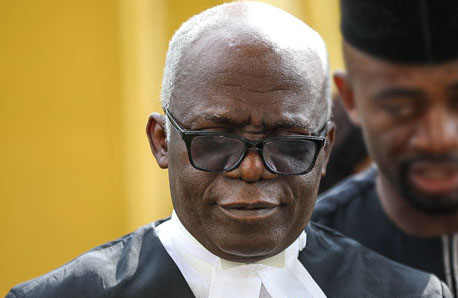Human rights lawyer and a Senior Advocate of Nigeria (SAN), Femi Falana, on Wednesday said Nigeria is in trouble if the Independent National Electoral Commission (INEC) is barred from transmitting election results electronically.
Two weeks ago, the National Assembly leadership blocked the electronic transmission of election results in Nigeria, an amendment that President Muhammadu Buhari had also refused to sign into law after arguing that it was going to disrupt the conduct of the 2019 elections.
But speaking during an interview, Falana cited Section 52 of the Electoral Act Amendment Bill and the prohibition of the electronic transmission of election results, calling on Nigerians to demand that the proper thing be done.
“By virtue of Section 52 of the Electoral Act amended in 2015, INEC is given unchallenged powers to device any process to guarantee that everybody is able to vote and so INEC is empowered to transmit results electronically,” he said.
“When you now put it in the law that INEC shall not transmit election results electronically, we are in trouble. I’m sure that Nigerians are going to continue to demand that proper thing is done in order to ensure that the process we are putting in place will guarantee fair and free election.”
He also frowned at plans to prevent election results from being declared by INEC, under duress, asking the citizens to call on the representatives in the National Assembly not to sabotage the electoral process.
Falana’s remarks came three days after ex-INEC Chairman, Prof Attahiru Jega, faulted the exclusion of electronic transfer of results.
Jega lamented that the decision of the 9th Assembly to allow INEC to use electronic voting without the electronic transmission of results is counterproductive.
“You can’t permit INEC on one hand to use electronic voting and not use electronic transmission of results because usually, they go as a package,” he said.
“Once there is a robust software and hardware for doing so, it now brings efficiency, transparency and real time ability to see the result as they are transmitted from the polling unit to a National Collation Centre.”



